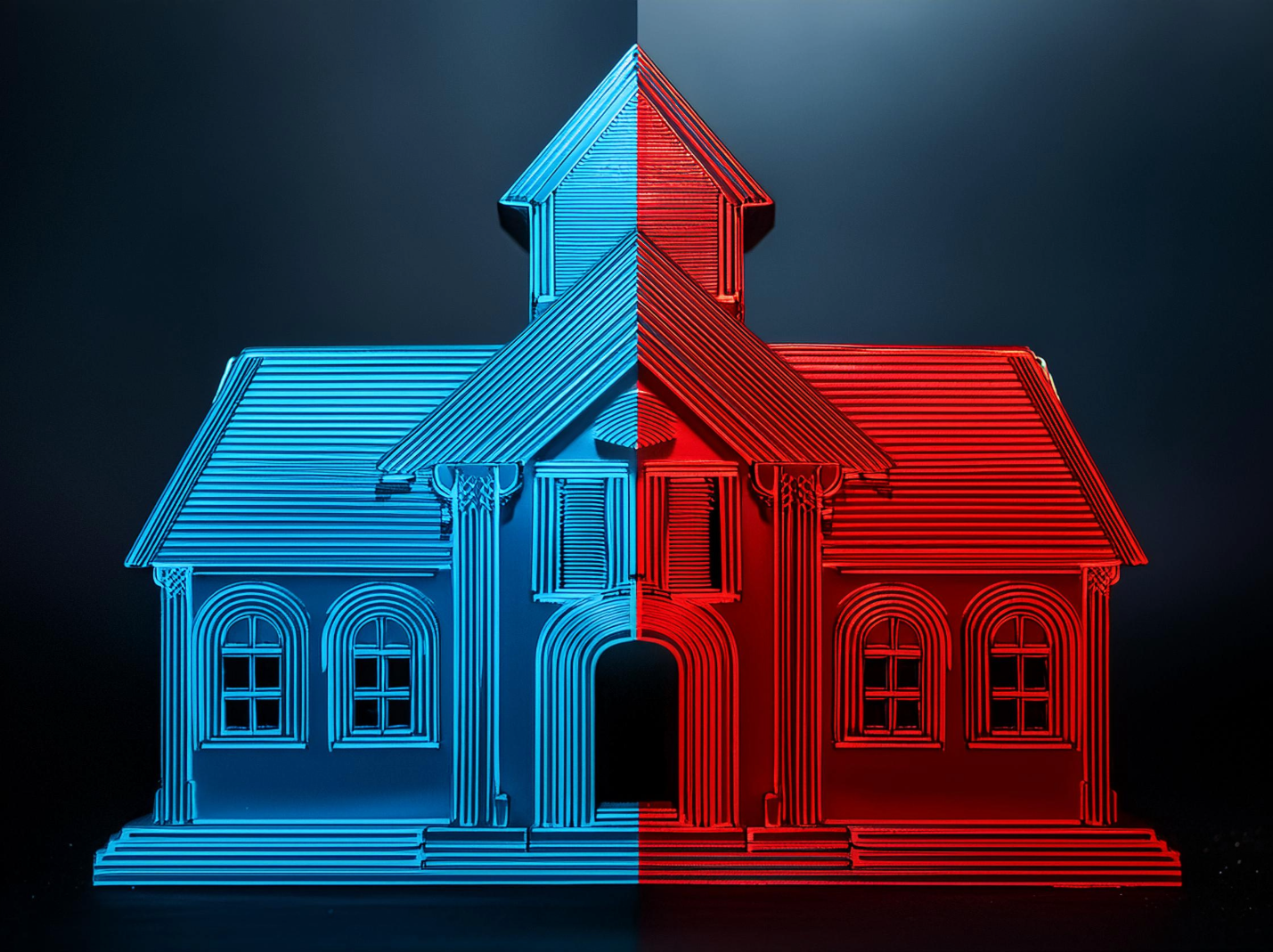
Author’s Note: This excerpt is from my weekly “Top of Mind” email, sent to subscribers every Thursday. For more content like this and to receive the full newsletter each week, sign up on Minding the Campus’s homepage. Simply go to the right side of the page, look for “SIGN UP FOR OUR WEEKLY NEWSLETTER, ‘TOP OF MIND,’” and enter your name and email.
We may never know what motivated Thomas Matthew Crooks to become Trump’s would-be assassin, but as we seek answers, we must recognize the role educators across the country have played in perpetuating a discourse that fuels animosity and normalizes political violence. Specifically, many educators have portrayed Trump as an existential threat to America. Moving forward, a narrative shift is essential.
Days before the attempted assassination, retired Seattle teacher Michael McSweeney penned an editorial in the The News Tribune, expressing concern that Trump may win the presidency again, issuing a dramatic “apology” to former students, admitting he had misled them about the U.S. government’s checks and balances. “I lied to you because I never could have imagined one person as evil and dangerous as Trump could ever be elected president,” McSweeney wrote, echoing the ideological stance many educators have taken since Trump rode the golden escalator.
In 2016, when I was a freshman history student at the University of Southern Mississippi, professor Dr. Tyler used her lecture on World War II to draw a comparison between Trump’s “Make America Great Again” slogan and Hitler’s rhetoric, alleging that Hitler said, “Make Germany Great Again.” How could impressionable students interpret this intellectually dishonest comparison as anything other than equating Trump with an evil dictator?
This sentiment wasn’t unique to my college in South Mississippi.
A year later, College Fix reported that University of Southern California professor Charles H.F. Davis defended controversial tweets that included obscenities directed at President Donald Trump and calls for the destruction of “whiteness” and the “white supremacist heterosexist patriarchy.” Davis, then an assistant professor and Chief Strategy Officer at the USC Race and Equity Center, argued that Trump’s rhetoric and policies embody oppressive systems. His Twitter background photo showed a black woman shooting a pig dressed in a police uniform.
Even after the horrific events of this past weekend, this rhetoric persists.
Louise A. Kelly, an associate professor of exercise science at California Lutheran University, posted on Facebook her hope for another assassination attempt, even wishing to assassinate Trump herself. Stacey Patton, an associate professor at Morgan State University, wrote that she hoped the attempt was successful and argued that killing Trump would be justified because “Republicans are racist”—minorities did incredibly well under the Trump administration.
The same rhetoric surfaced in Crooks’s neck of the woods. In 2019, a Pennsylvania middle school teacher had to apologize to parents after assigning homework in which students pretended to be refugees amid a scenario where President Trump was attempting to seize control of the country.
Without a doubt, this education has profoundly warped the minds of young people everywhere.
A young TikTok user recorded herself screaming into her phone, angry that Crooks missed. In an interview by Timecast News another seemingly young woman, who claimed to be born in the Soviet Union and has a hammer and sickle tattoo on her shoulder, says, “It’s a shame the person missed.” Others have recorded themselves summoning John Wilkes Booth, whose spirit might help a future assassin.
This should surprise no one. Educators have contributed, in the most inappropriate ways, to our political discourse. If anything, the attempt on Trump’s life is a clear wake up call that educators must change their tone.
Amidst dangerous rhetoric and ideas, educators should uphold our republic’s principles. Political differences and passionate debates should not escalate to violence; instead, educators should inspire civil discourse, respectful disagreement, and peaceful solutions.
I hope the trail ahead is better.
Image by Jared Gould — Text-to-Image

I believe that Trump IS an existential threat to America. You may certainly disagree with me on this, but my holding and expressing this opinion most certainly does not “normalize political violence.” Neither I nor most others who view the former president in this way have ever advocated violence as a response. Mr. Gould is selectively citing examples of offensive behavior to make broad claims,
” but my holding and expressing this opinion most certainly does not “normalize political violence.”
Actually, it does, and in a way you may not realize — you are attacking the man and not his agenda. The traditional American (small “l”) would never do this. It’s even considered a logical fallacy (ad hominem).
Personally, I consider the agenda, goals, and policies of Obama/Biden/Harris to be an imminent threat to the republic — but I have no ill will toward any of them as human beings. It is important to make the distinction.that their IDEAS are bad, not them personally.
Please.
This normalization of violence has been the hallmark of the campus left for years.
Your whining about the numerous examples set forth by the author is especially pedantic, as they represent not a culled, small sample set, but rather proof there is an overabundance. For further evidende, I can also look outside and watch my campus burn from the Hamas/antifa convention in town as well, thank you very much for asking.
If we want to read such gaslighting, we’ll go over and read the schlock from the neo-Stalinists and antisemitic neofacists over at the AAUP.
“Dr. Tyler used her lecture on World War II to draw a comparison between Trump’s “Make America Great Again” slogan and Hitler’s rhetoric, alleging that Hitler said, “Make Germany Great Again.” How could impressionable students interpret this intellectually dishonest comparison as anything other than equating Trump with an evil dictator?”
We can start with ending the sophomoric tradition of viewing Hitler as merely an evil dictator — he was evil and he was a dictator, but he was also a whole lot more and the problem is in not understanding that. Reality is that Franklin Roosevelt and Adolph Hitler started with a largely identical domestic program to deal with largely similar economic woes, notably massive unemployment. Both relied on nationalism, FDR’s National Recovery Eagle was very similar to Hitler’s Nazi Eagle, etc.
Look at what Hitler *initially* did — public works projects like the Berlin subway. The Autobahn, and the “people’s car” (Volkswagen) to ride on it. He was welcomed into Austria. And as to expanding the military to reduce unemployment, Roosevelt did the same thing with the Civilian Conservation Corps.
People forget that Hitler won a plurality in what was a basically fair election. Or that the Holocaust essentially started two decades earlier in American academia with the Eugenics Movement.
Not only did Hitler promise to Make Germany Great Again but he did it — as did Franklin Roosevelt. The problem with Hitler was that (a) people didn’t ask questions about HOW he was making Germany Great Again, and (b) Germany didn’t have a culture of (small “l”) liberalism. It had only become a unified country a few decades earlier, and that had been Bismark’s “Blood & Iron”, not Locke’s “Life, Liberty, & Property.”
While some compared Trump to Andrew Jackson, I compare him to FDR. Both remade a moribund minority party in their own image, driving out the existing leadership. Their enemies have compared both to Hitler, and neither comparison is accurate, even if both used similar tactics to address economic issues.